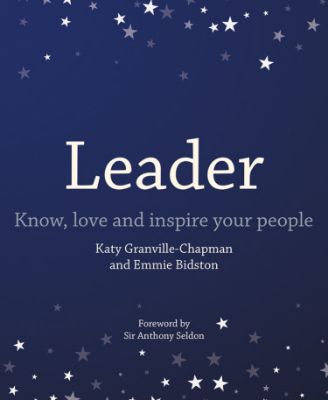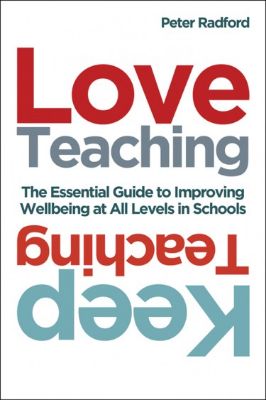Cookies help us deliver our services. By using our services, you agree to our use of cookies.
News
UKEdChat's After Hours webinar is available to watch on demand
Friday, 20 November 2020
‹The following areas were addressed in the webinar:
Watch the webinar here.
To find out more about Richard's new book Independent Thinking on Emotional Literacy, click here.
Read more
- What is your understanding of emotional literacy?
- What learning challenges do you think a better understanding of emotional literacy can help with?
- Know thyself: How can understanding your reactions to particular situations be useful in the classroom, for both pupils and teachers?
- While everyone is different, what are the common trigger points for bad outcomes in your experience from your own classroom?
- What strategies have you used or seen to increase emotional literacy for learning?
- How can senior leaders, and the wider school community help individuals develop better emotional literacy?
- What role could technology play in developing better emotional literacy?
- What can teachers achieve by having a better emotional literacy of themselves?
Watch the webinar here.
To find out more about Richard's new book Independent Thinking on Emotional Literacy, click here.
Improving Learning with Emotional Literacy
Thursday, 19 November 2020
'Understanding why we do the things we do isn™t always clear. Many of the decisions we make are clouded by unrelated incidents which happened hours, days, or weeks before. Drawing insight into the reasons which trigger our behaviour is key to moving beyond it and removing barriers to learning. Only with a greater understanding of emotional literacy can pupils and teachers overcome the destruction that we do to ourselves.'
Register for the webinar here.
Find out Richard's new book Independent Thinking on Emotional Literacy here.
Read more
Register for the webinar here.
Find out Richard's new book Independent Thinking on Emotional Literacy here.
Schools as community action centres
Tuesday, 17 November 2020
'School leaders make a difference within and beyond the school. They impact not only the learning of students, but their character and aspirations, their vision for who they want to be in the world. New models of leadership are about empowering staff and students to become the leaders of the future, it is a model that moves students from leader: follower when they join the school, to leader:leader when they graduate.'
Read the full article here (Teaching Times: subscription required)
Find out more about Katy and Emmie's book Leader here.
Read more
Read the full article here (Teaching Times: subscription required)
Find out more about Katy and Emmie's book Leader here.
Love Teaching, Keep Teaching has arrived!
Tuesday, 17 November 2020
Written by Peter Radford, Love Teaching, Keep Teaching: The essential guide to improving wellbeing at all levels in schools is a practical guide to staying well in a high-pressure profession.
In the midst of a recruitment crisis and a massive exodus of teachers from our schools, now is the time for some joined-up thinking about teacher wellbeing and mental health.
Offering insightful advice and practical strategies, Peter invites you to think differently about the way education is ˜done™ and how you can keep doing the job you love without sacrificing your health and wellbeing.
Find out more and order your copy here.
Read more
In the midst of a recruitment crisis and a massive exodus of teachers from our schools, now is the time for some joined-up thinking about teacher wellbeing and mental health.
Offering insightful advice and practical strategies, Peter invites you to think differently about the way education is ˜done™ and how you can keep doing the job you love without sacrificing your health and wellbeing.
Find out more and order your copy here.
In the face of uncertainty, it's back to basics
Monday, 16 November 2020
'As we find ourselves in lockdown, with a pivot online on the horizon, what really matters is not the mastery of technology, but a focus on the development of skills and understanding, avers Erik Blair'. Read the full post here.
Find out more about Erik's new book Independent Thinking on Teaching in Higher Education here.
Read more
Find out more about Erik's new book Independent Thinking on Teaching in Higher Education here.
“Outdoor Learning” or “Learning Outdoors”? What’s the Difference?
Monday, 16 November 2020
'I™d like you to image a scenario where you are standing in a classroom and there is a choice of 2 doors to get outside. Both are brown. When you open either of them, they lead into the school grounds or a forest or a beach or any other place outside.
You turn to your colleague and ask which brown door you should open. She looks at you, shakes her head and says œHmm¦ well the door on the left is the brown door, but the door on the right is brown. You need to know the difference, my friend. At this point you would probably be wondering why your colleague is being grammatically pedantic. Does it really matter whether you say œThe door is brown or œThe brown door? Perhaps you have gone down a rabbit hole like Alice and hadn™t realised such differences matter in this strange new world.
If you look at my book title, it™s called œDirty Teaching: A Beginner™s Guide to Learning Outdoorsœ. When asked what I do for a living, I state that I am an education consultant who specialises in outdoor learning and play. I use œoutdoor learning and œlearning outdoors interchangeably. It is a normal and natural thing to do. This is in line with national guidance within Scotland. There is not one single national document that advocates a difference between œoutdoor learning and œlearning outdoors.'
Read the full blog post here.
Click to find out more about Juliet's books Messy Maths and Dirty Teaching.
Read more
You turn to your colleague and ask which brown door you should open. She looks at you, shakes her head and says œHmm¦ well the door on the left is the brown door, but the door on the right is brown. You need to know the difference, my friend. At this point you would probably be wondering why your colleague is being grammatically pedantic. Does it really matter whether you say œThe door is brown or œThe brown door? Perhaps you have gone down a rabbit hole like Alice and hadn™t realised such differences matter in this strange new world.
If you look at my book title, it™s called œDirty Teaching: A Beginner™s Guide to Learning Outdoorsœ. When asked what I do for a living, I state that I am an education consultant who specialises in outdoor learning and play. I use œoutdoor learning and œlearning outdoors interchangeably. It is a normal and natural thing to do. This is in line with national guidance within Scotland. There is not one single national document that advocates a difference between œoutdoor learning and œlearning outdoors.'
Read the full blog post here.
Click to find out more about Juliet's books Messy Maths and Dirty Teaching.






